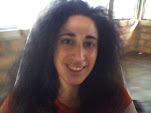Guyana, like other Caribbean countries, has only 2 seasons: Rainy Season, and Dry Season. The sun rises and sets within the same hour throughout the year (sunrise between 5:30 and 6:30 a.m., sunset between 5:30 and 6:30 p.m. most of the time) and the temperatures vary very little, around 30C, which is 86F. Breezes are always welcomed.
Dry Season lasts from about November (the rains end around late August, and a month or so later, the waters recede) to May, and in this time, the rivers come drastically down, roads open up all over the savannah, dust is rampant and fishing is a free for all. It's harder to maneuver boats through some twists and turns of rivers and creeks, but the fishing makes it worth it. For those away from water sources, there can be stress to maintain enough drinking, bathing, washing water. Though I've never heard of terrible drought-like instances anywhere. I've come to view Dry Season as the more enjoyable of the two seasons.
In rainy season, one has to be prepared to always be dirty. Once you get clean, you're either stepping in mud or a puddle, or you're slapping bugs and smearing blood all over, or you're spraying bug spray, or you're sweating because of the long sleeves you're wearing.
My feet are perpetually dirty, with mud lines outlining my toes. I'm constantly slapping all exposed parts of my body. There's either a bug to wipe off, a hive like bite to not itch, a bubble of blood to wipe, scrape away. And then with the itching you're not supposed to be doing with the bites, you're getting dirt under your nails that you have to constantly clean out.
Cicadas are running 24/7, their constant humming, buzzing, trilling doesn't just happen at dusk and night time, but throughout the entire day. You can hear as new ones join in, either matching to the same frequency as the others, or creating a whole different wavelength of sound.
The sky is cloudy and so our solar panels aren't continually functioning, meaning work done on computers is limited, the wells aren't continually functioning so water is inconsistent to wash clothes. When you get your clothes washed and on the line, it may be days before they are fully dried, because once they get half dried, rain comes again.
With different rain fall patterns on the roof, the leaks appear in different places each night. Moving the bed out of one leak one night might mean nothing the next night, as rain has found another hole from nails in the zinc roof. Nothing can be left on the ground, because water seeps in from the corners of the room.
Yups is on a hill, which prevents massive flooding in the village. However, at the bottom of the hill, a creek forms. It's called Prepida, and it comes up the hill halfway. It's a good place to go bathing, closer than the river or lake, though to get to the main road, you have to take a long route around, where water is lower. And the on the road to Lethem, you have to go the long way, because the shortcut through Nappi and Parishara is underwater. It's 30 to 50 minutes out of the way, not to mention the slower velocity you're already driving because of puddles and things.
Higher water levels also indicate lower density of fish, as well as fish eggs getting uprooted and flooded out. Fried fish is hard to come by in times like these. No boily, no orange fish, no fish stew, either.
On the up side, travel by water is easy and quick, there are no worries of running on land, you have to make fewer turns. You can use routes to places that'll get you there faster than it would on land. And, there IS an exquisite joy in travelling by water. You are at eye level with the earth, almost, you are pulled into one of its rhythms. You have the breeze on your face, the sunlight above you, the buoyancy of the water beneath you. You have a higher opportunity to see different birds, reptiles and mammals.
You can wait for the storm to pass, or you can learn to dance in the rain, right?
Subscribe to:
Post Comments (Atom)

No comments:
Post a Comment